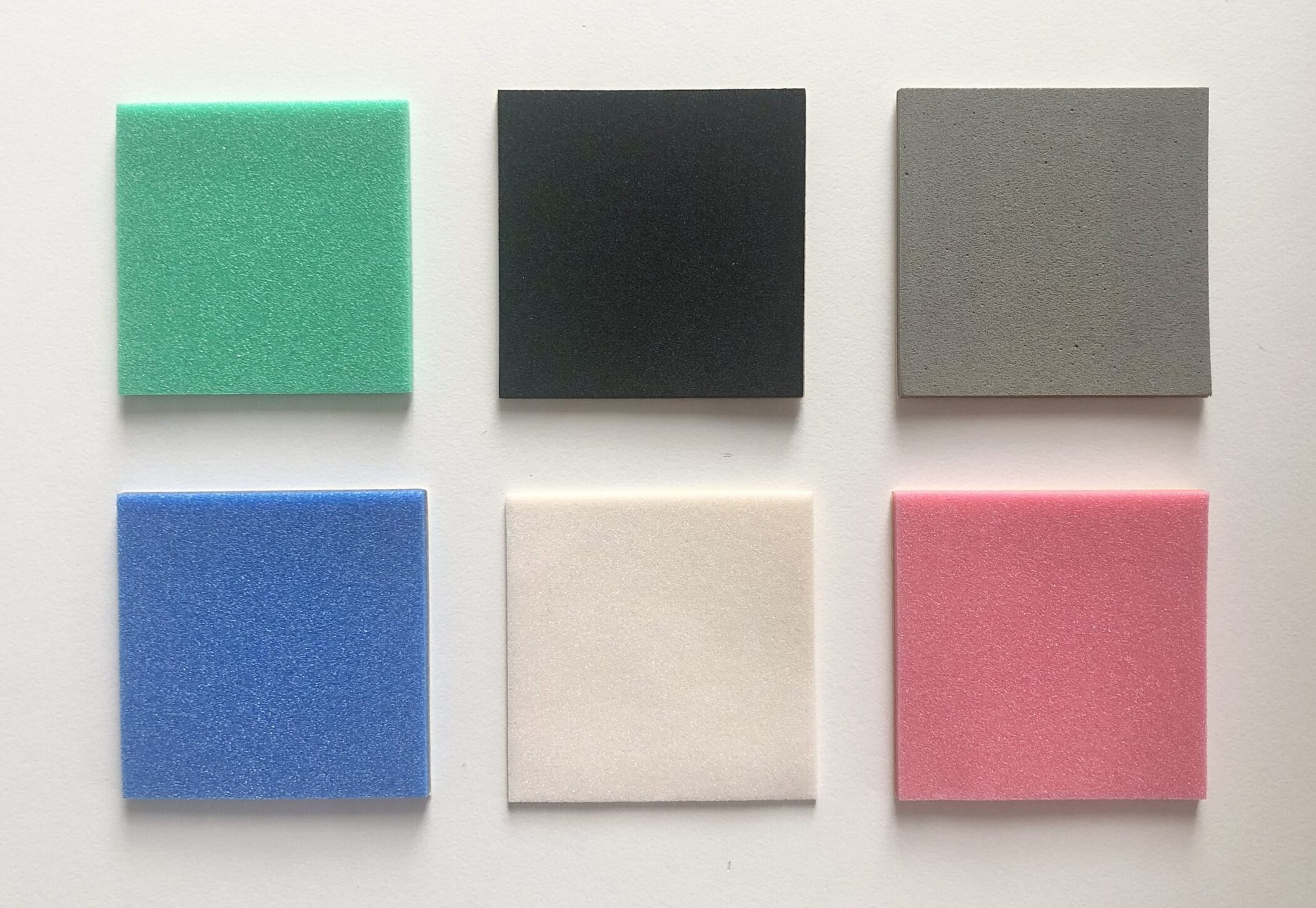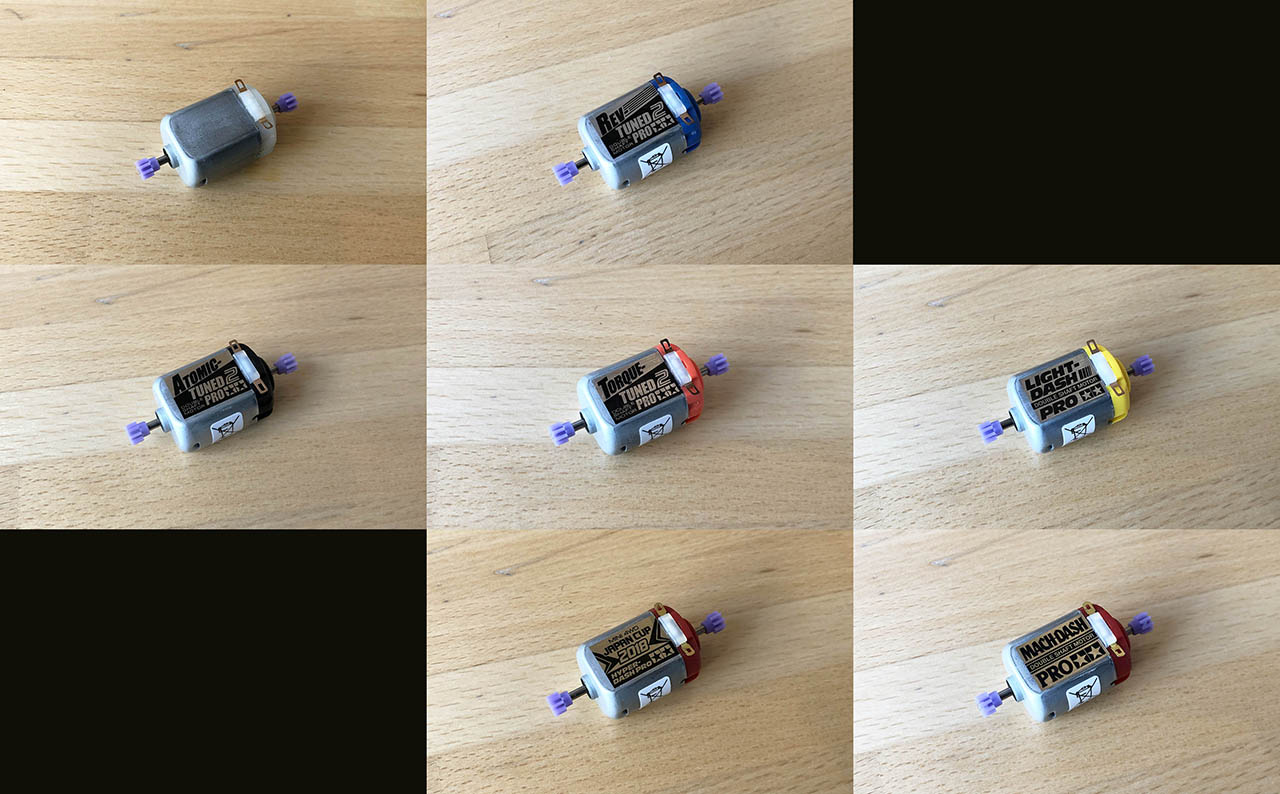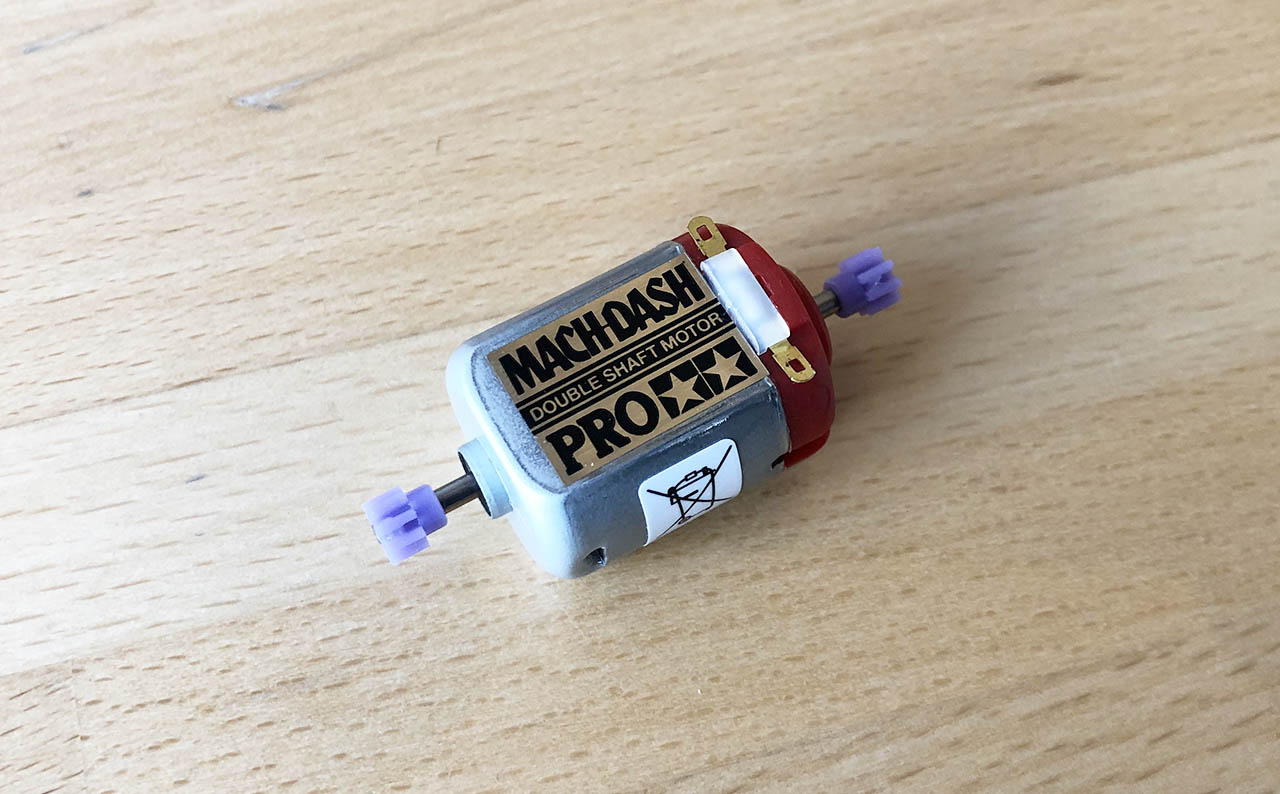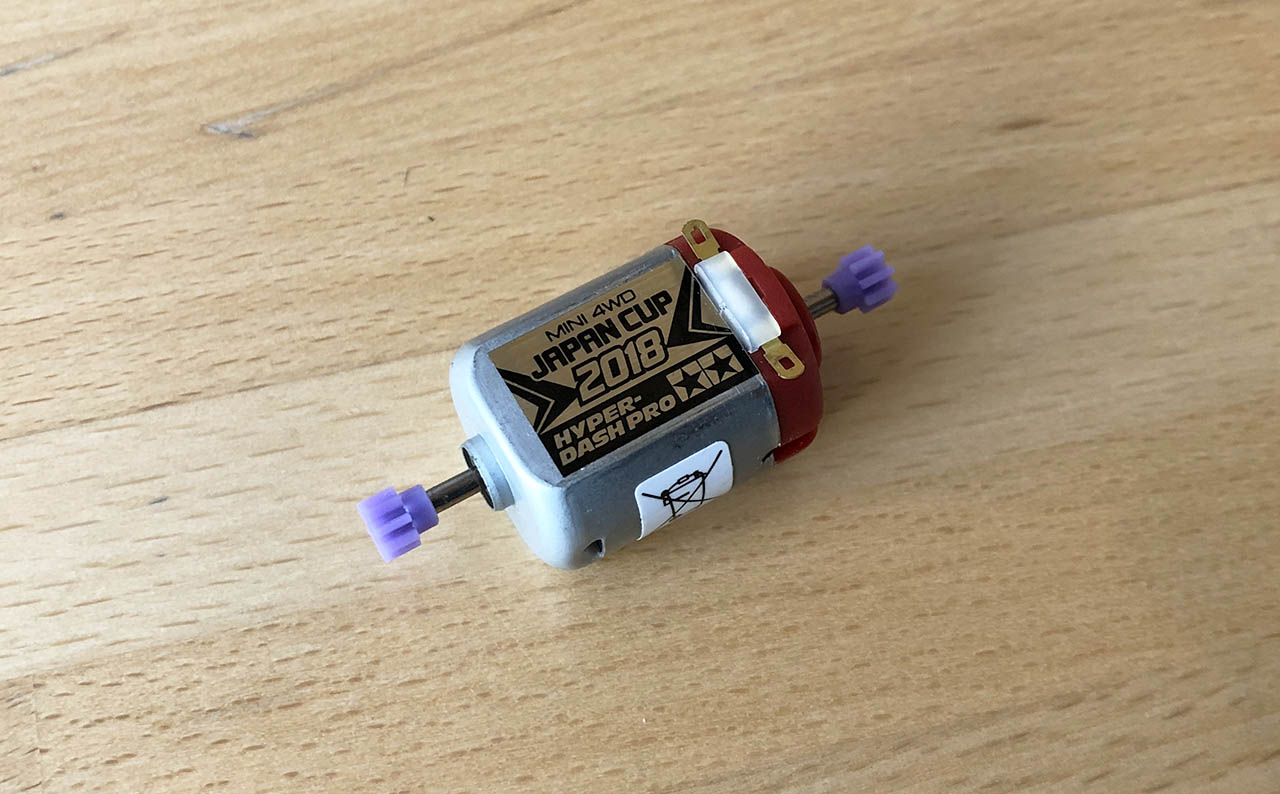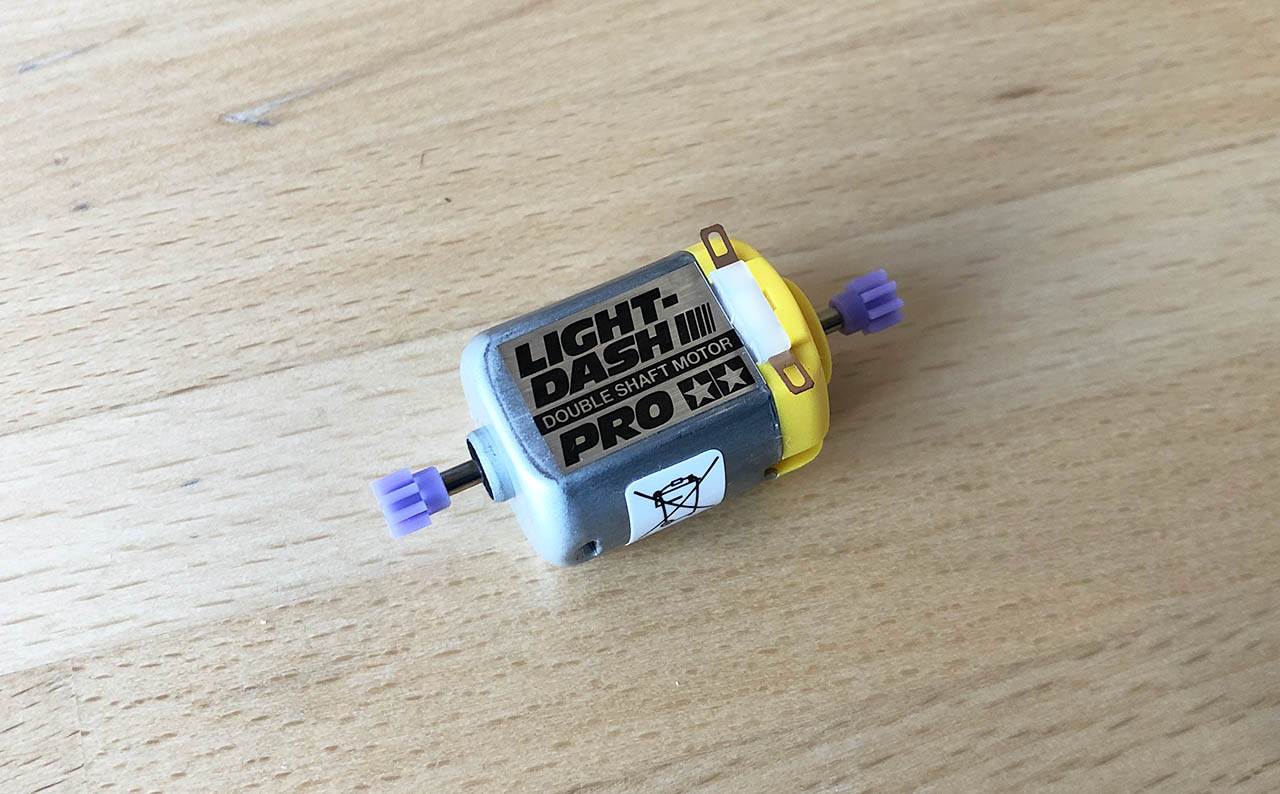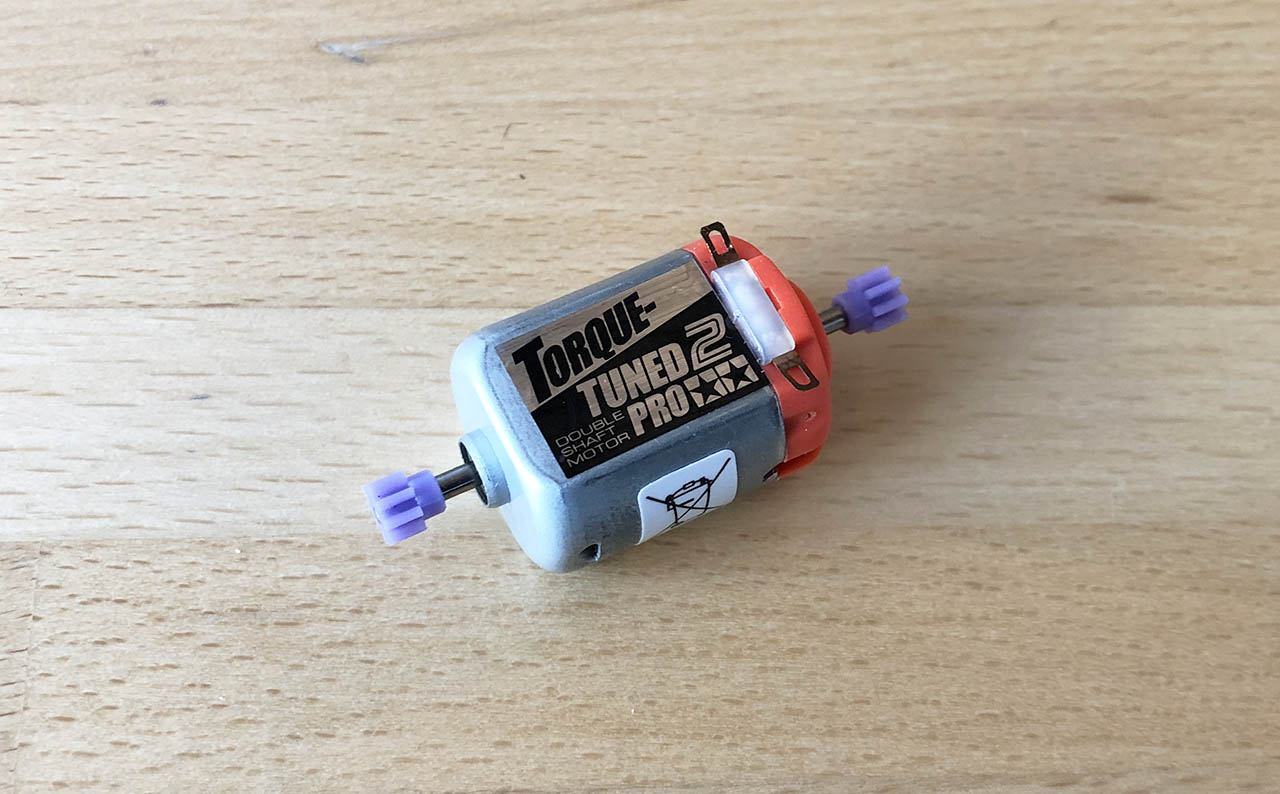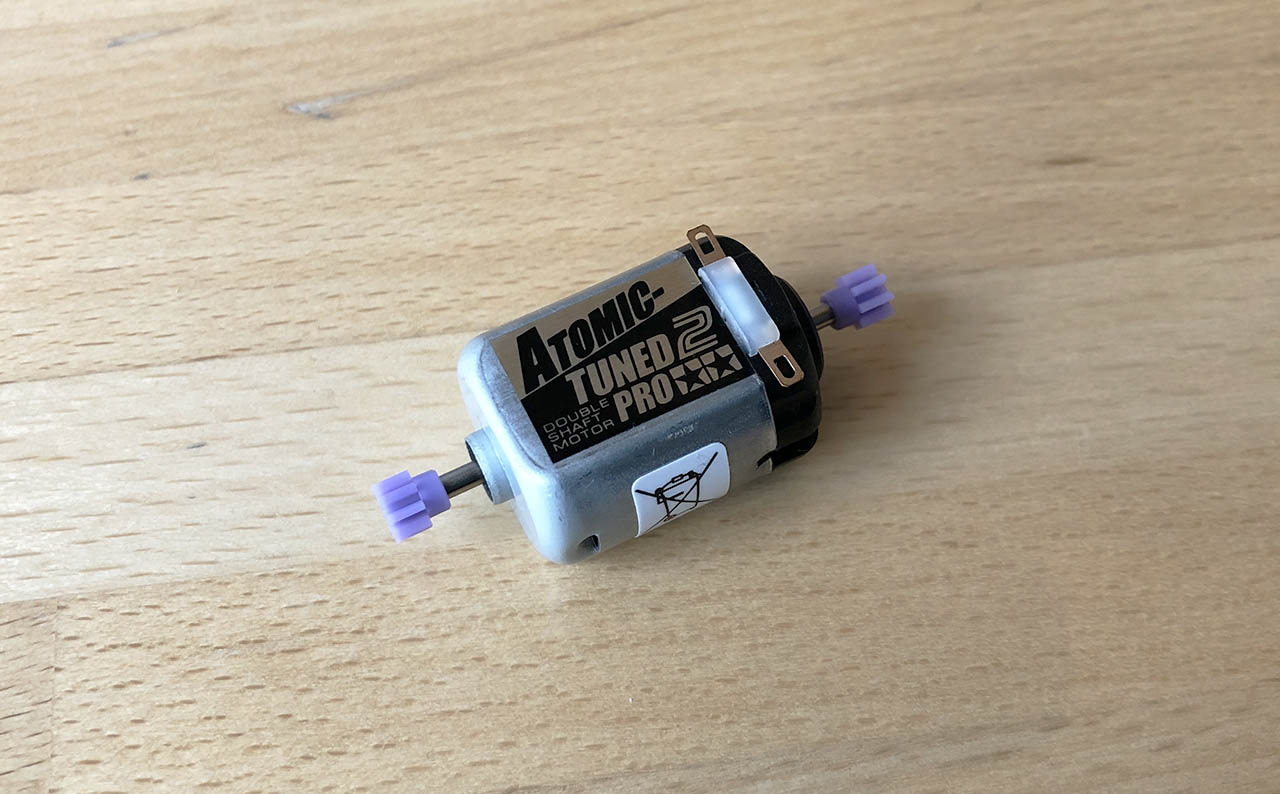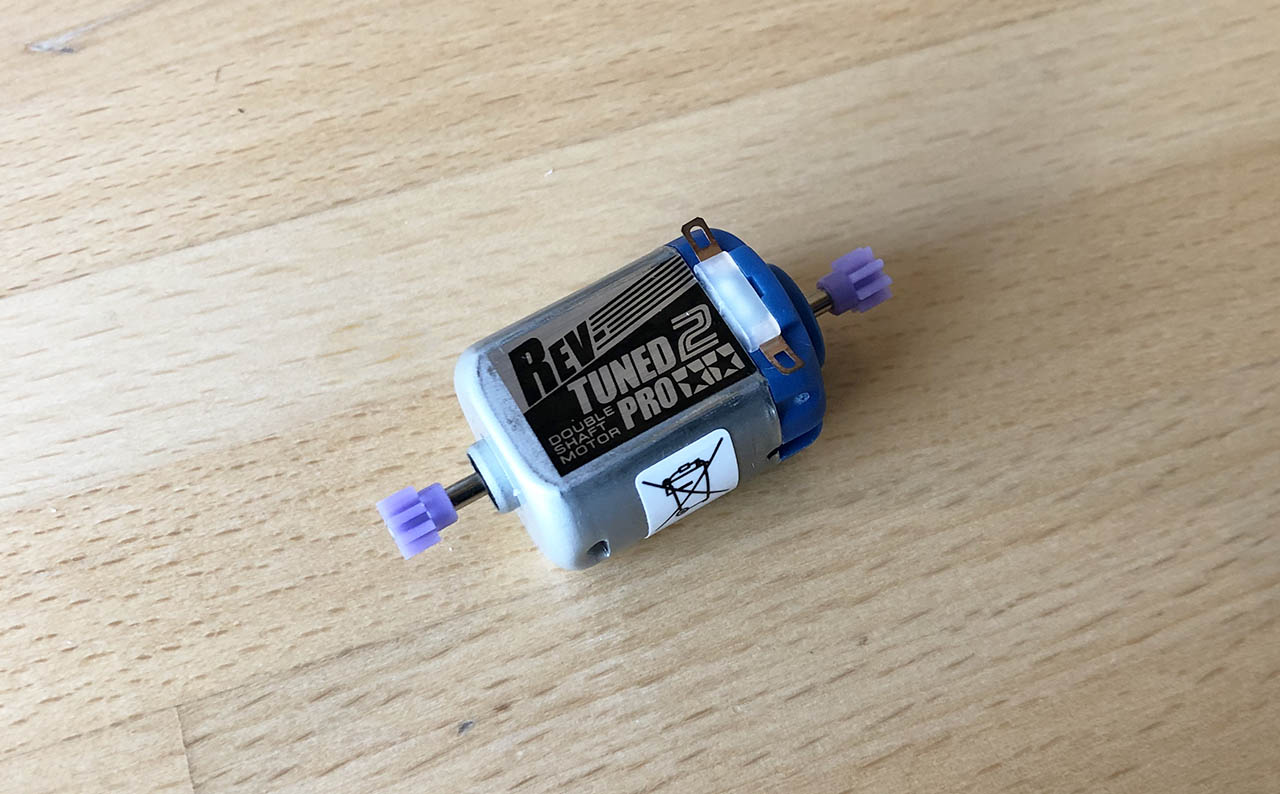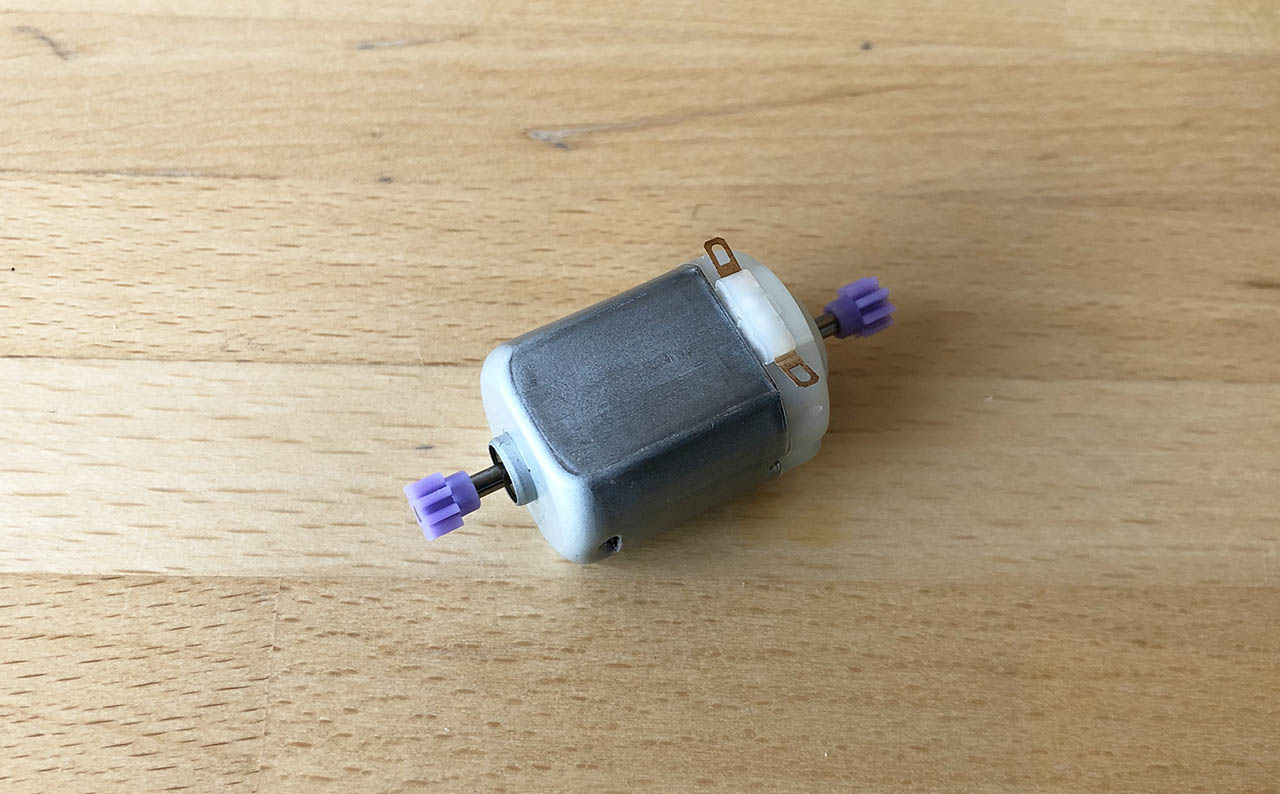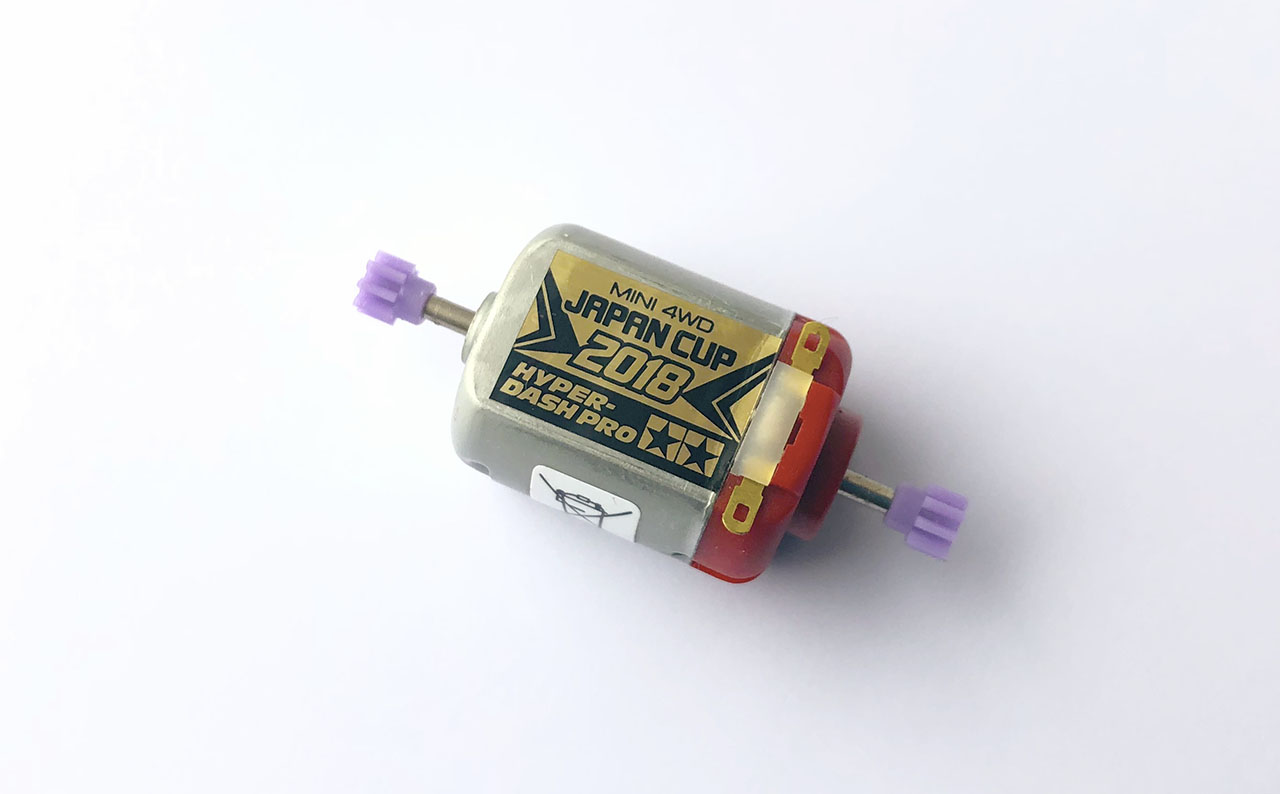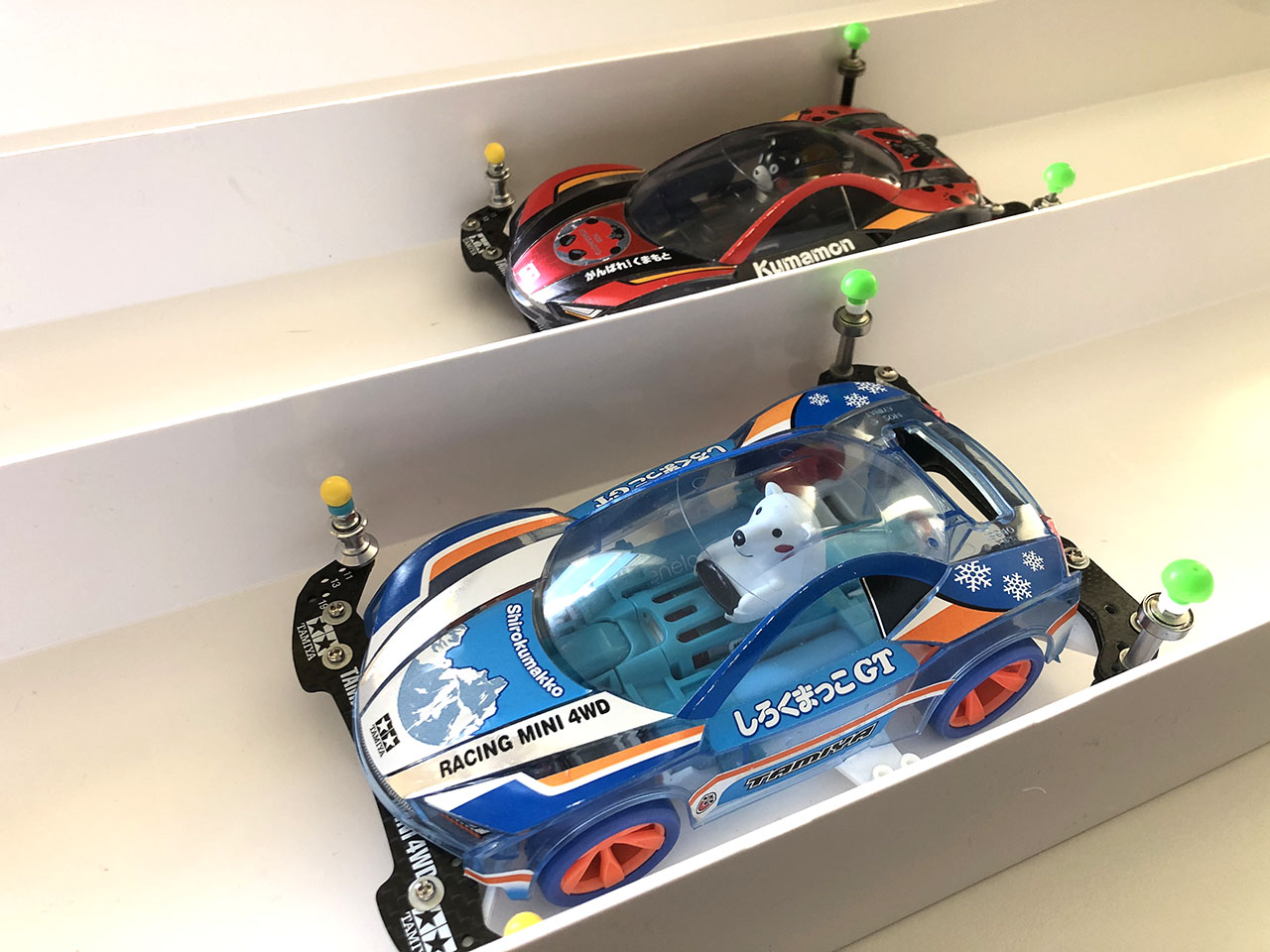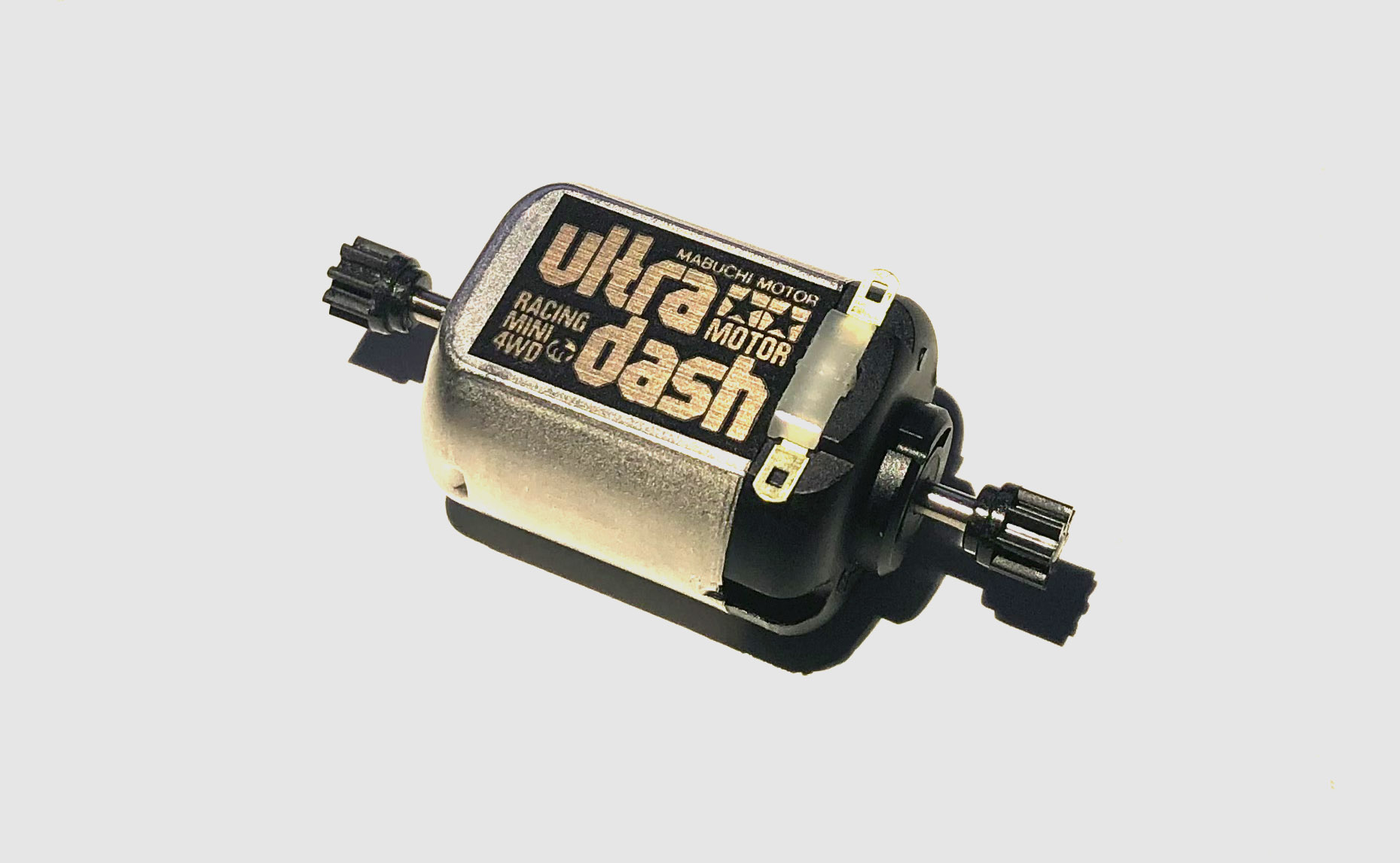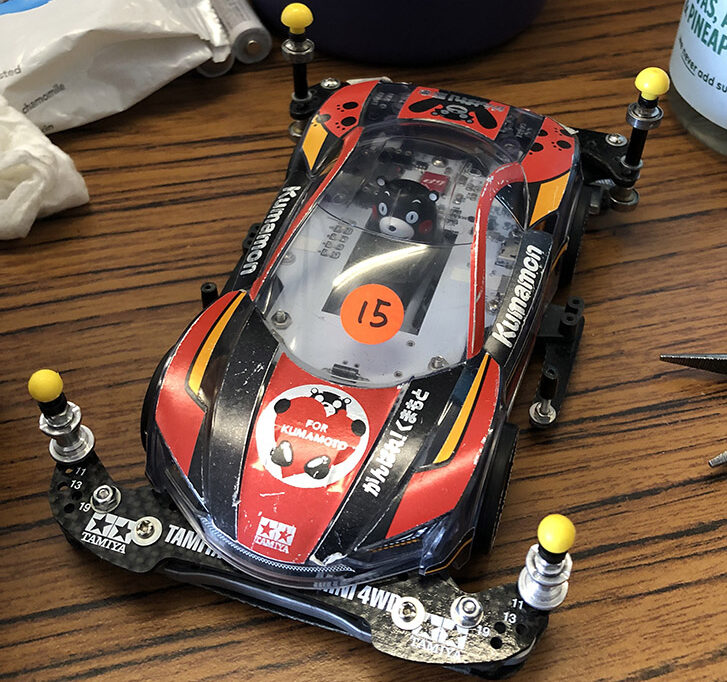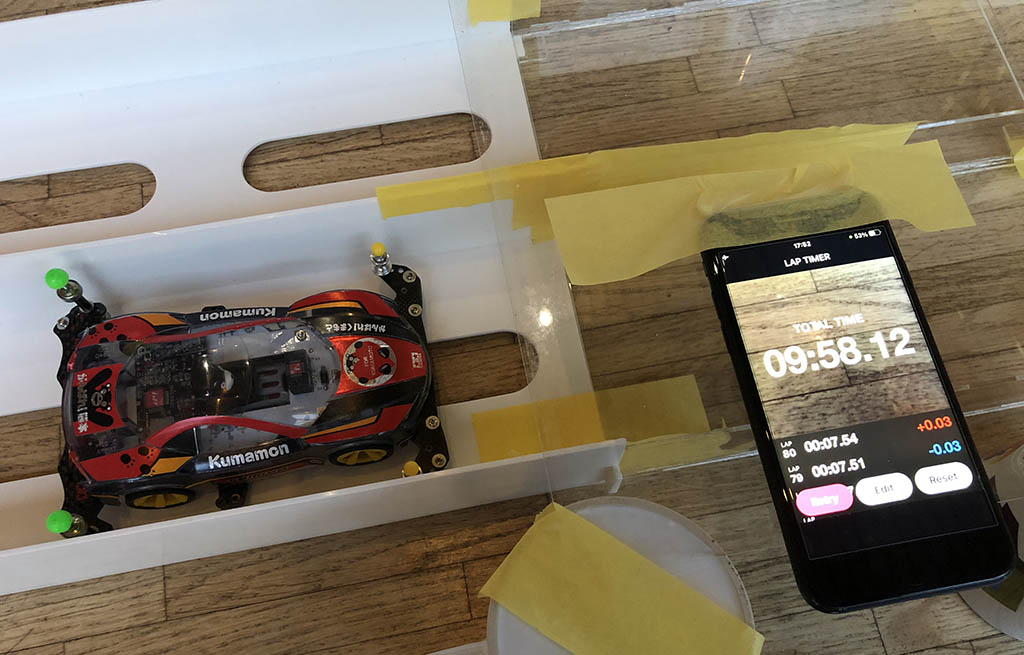First published 17 February 2023. Last updated 19 February 2023.
Introduction
We have recently tested three Tamiya Mini 4WD Tuned PRO motors and the stock (kit standard) motor. Let's do a side by side comparison to find out which one is the best amongst the four. For full detail report on each motor, please refer to previous articles (see links below).
This is part of the PRO motor test series. We are testing all seven PRO motors: Stock PRO, Rev-Tuned 2 PRO, Atomic-Tuned 2 PRO, Torque-Tuned 2 PRO, Light-Dash PRO, Hyper-Dash PRO and Mach-Dash PRO. A report will be written for each, followed by comparison reports (like this one and Dash compared, All PROs compared). So watch this space.

The spec
Let's remind ourselves the performance of the Tamiya Tuned 2 PRO motors based on information from the Tamiya's Mini 4WD motor chart on the Mini 4WD Setup guide webpage:

| Stock | Rev-Tuned | Atomic-Tuned | Torque-Tuned | |
| Torque at recommended load (mNm) | unknown | 1.2 - 1.5 | 1.6 - 1.8 | 1.6 - 1.8 |
| RPM | unknown | 13,200 - 14,900 | 12,300 - 14,500 | 12,200 - 14,400 |
Since there is no official information about the stock (kit standard) motor. We will leave it as "unknown".
Test track, method and equipment
A quick recap on how we test the motors.
The track: We tested the car in our two lanes Tamiya Mini 4WD Oval home circuit with extensions to make a bigger track with longer straights. We removed the bridge crossing. We only used the outer lane to run the experiments. Based on Tamiya's information, we calculated that the length of the circuit was ~8.66 metres long.
The method: We ran our test car around the circuit in clockwise direction, starting from the start grid (see car position below). We ran three runs per motor and each run lasted 30 seconds. The batteries was fully re-charged before each run. The motor was given enough time to cool down to avoid performance loss.
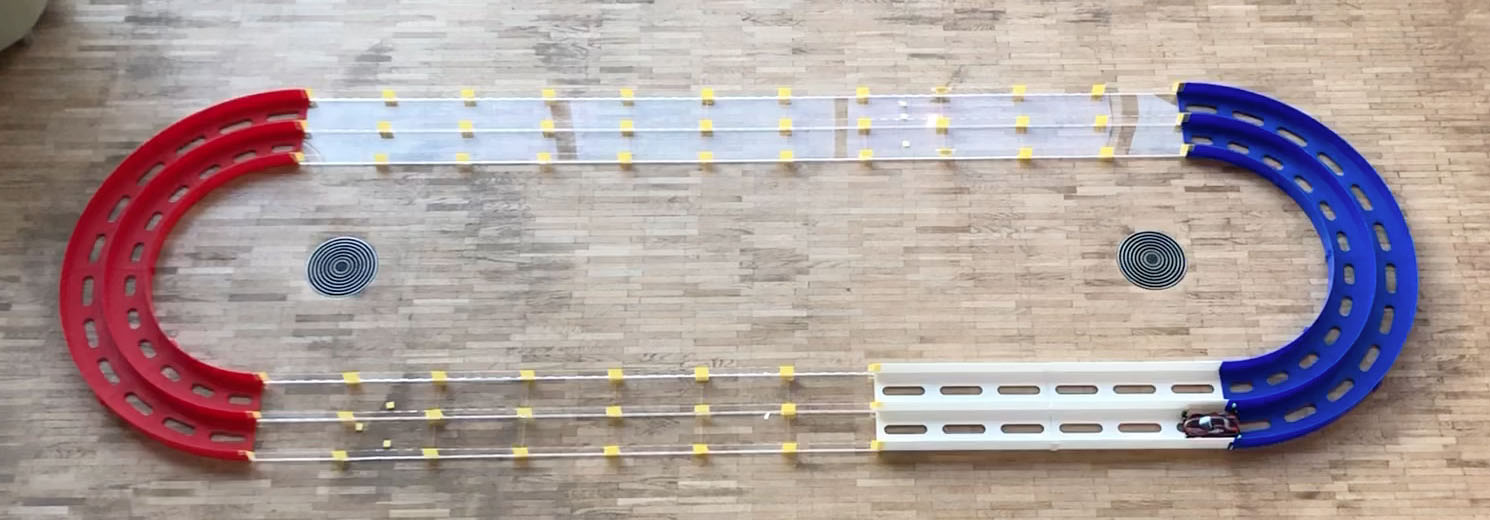
The equipment: We used our Mini 4WD development prototype based on MA chassis with telemetry data recording capability powered by ARM Cortex M0 48Mhz processor (Arduino Zero) to record data in an on-board data storage device. After every run, we downloaded the data (in CSV format) from the on-board computer and analysed the results with our analytic web app and Microsoft Excel.

For more information, please check the full reports e.g. Stock PRO, Rev-Tuned 2 PRO, Atomic-Tuned 2 PRO, Torque-Tuned 2 PRO, Light-Dash PRO, Hyper-Dash PRO and Mach-Dash PRO.
Top speed comparison
Let's compare the top speed of the four motors in car speed (m/s).
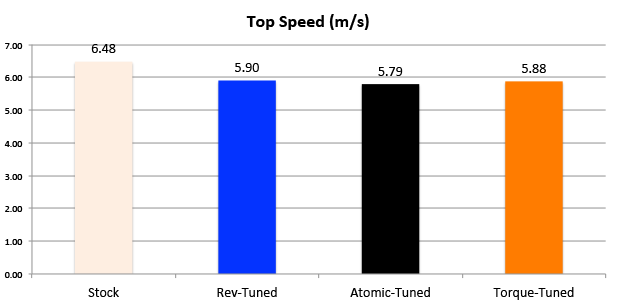
Surprisingly, our stock PRO motor has the highest top speed 6.48m/s on average based on the result from three runs, followed by our Rev-Tuned 2 PRO at 5.9m/s, then our Torque-Tuned 2 PRO at 5.88 m/s and lastly our Atomic-Tuned 2 PRO 5.79 m/s. Although our Rev-Tuned PRO is the quickest of the tuned motors, but the difference is only a tiny 0.11 m/s which could be a measurement error.
Average speed comparison
Let's compare the average speed of the four motors in car speed (m/s).
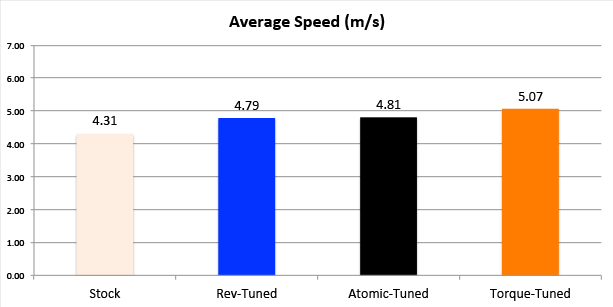
Surprisingly, our Torque-Tuned 2 PRO motor has the highest average speed at 5.07 m/s on average based on the result from three runs, followed by our Atomic-Tuned 2 PRO at 4.81m/s, then our Rev-Tuned 2 PRO at 4.79 m/s and lastly our stock PRO at 4.31 m/s. Unlike top speed, the difference is wider. One would expect Rev-tuned and Atomic-tuned have higher speed, but it is not the case based on our measurements.
Motor torque comparison
Let's compare the motor torque of the four motors.
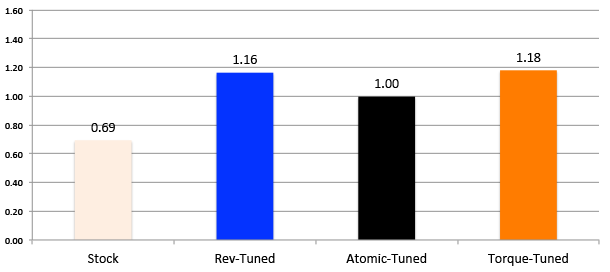
Our Torque-Tuned 2 PRO motor has the highest torque at 1.18 mNm on average based on the result from three runs, followed by our Rev-Tuned-Tuned 2 PRO at 1.16 mNm, then our Atomic-Tuned 2 PRO at 1.0 mNm and lastly our stock PRO at 0.69 mNm. The difference between torque-tuned and rev-tuned is tiny 0.02mNm which could be measurement error. Based on Tamiya spec, we would expect torque-tuned and atomic-tuned to have the highest torque followed by rev-tuned. But it is not the case from our results.
Top speed and average speed compared
Let's put the top speed and average speed figures (motor RPM) in one chart and see what we can discover.
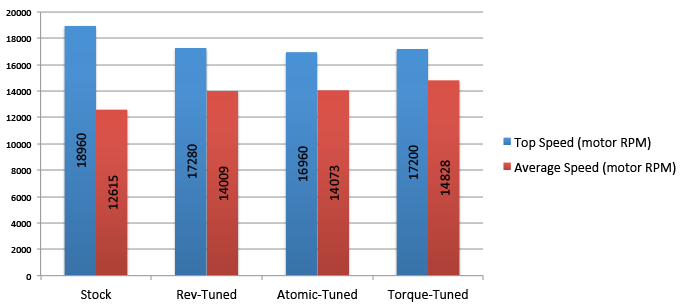
Our Stock Pro (kit standard) has the highest top speed, yet it has the slowest average speed, the variation is large. Whereas our Torque-Tuned 2 PRO motor has the highest average speed and the difference between top speed and average speed is the smallest.
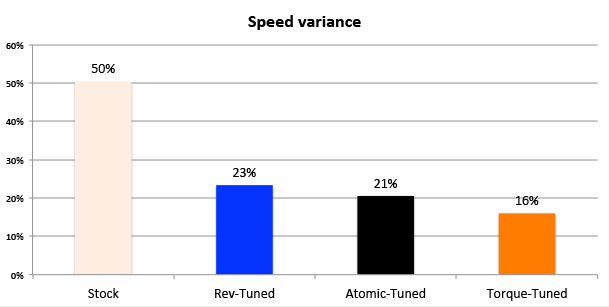
It is more clear when we calculate the variance in percentage i.e. (top speed - average speed) / average speed × 100% and plot a chart as above.
Higher variance will make it harder to control the speed over an obstacle. So if you want the most consistent performance, it seems like our Torque-Tuned 2 PRO motor is the best amongst the tuned PRO motors.
How do they compare with Tamiya recommendation?
Here is an extract of the performance graph from Tamiya's website.
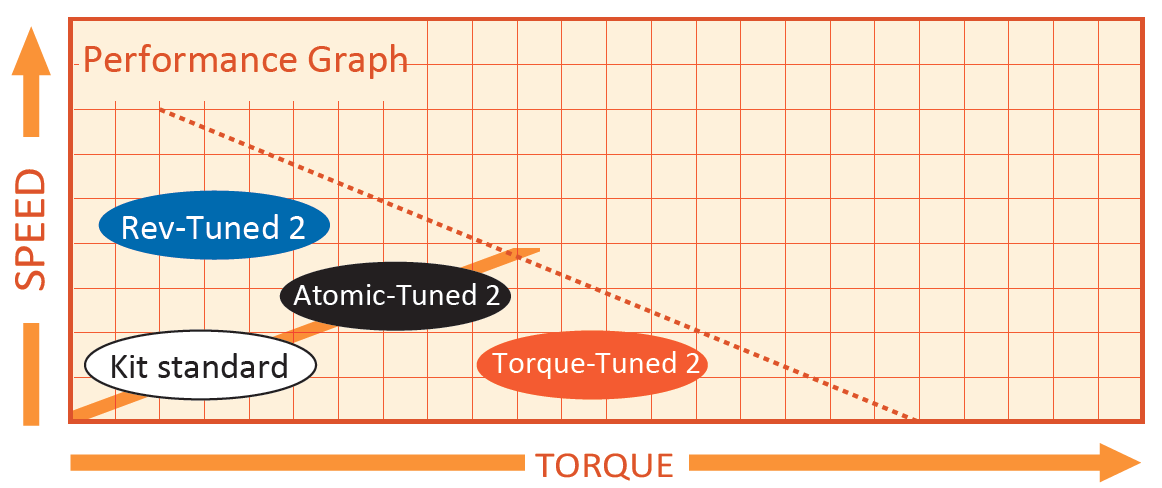
The graph gives the impression that Rev-Tuned 2 motor gives you more speed, Torque-Tuned 2 motor gives you the most torque (acceleration) and Atomic-tuned 2 motor gives you the balance of the two. Stock PRO (kit standard) gives you the least performance.
Let's plot our result in a similar format and see what we can discover:
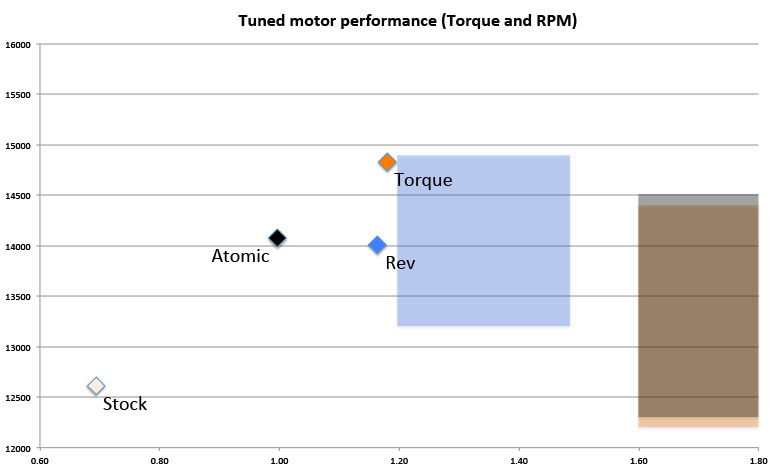
X-axis is motor torque (mNm) and Y-axis is motor RPM.
The diamond dots are the results based on our measurements (average speed and motor torque from standstill). The colour boxes are based on information on Tamiya's website. The colour are related to the colour of the bell cap of the motor with stock (in beige), rev-tuned (in blue), atomic-tuned (in grey) and torque-tuned (in orange).
Looking at the boxes, they are quite close to what Tamiya illustrated in their performance graph, however the difference between torque-tuned and atomic-tuned is much smaller according to Tamiya's spec.
| Stock | Rev-Tuned | Atomic-Tuned | Torque-Tuned | |
| Torque at recommended load (mNm) | unknown | 1.2 - 1.5 | 1.6 - 1.8 | 1.6 - 1.8 |
| RPM | unknown | 13,200 - 14,900 | 12,300 - 14,500 | 12,200 - 14,400 |
| Motor Torque from standstill (mNm) | 0.69 | 1.16 | 1.00 | 1.18 |
| Average Speed (motor RPM) | 12,615 | 14,009 | 14,073 | 14,828 |
We are going to compare our measured average speed with RPM from Tamiya and our motor torque from standstill with torque at recommended load from Tamiya. Since we don't know how Tamiya measured and made those claims, we don't have a 100% like-to-like comparison. But what we have done is a start. We have to start somewhere, right?
To make it easier to visualise, we have coloured the figures according to whether they are on spec or off spec. On spec in green and off spec in red.
In terms of motor RPM, comparing average speed with Tamiya's RPM spec, our measurements are within spec and sometimes even better than spec.
In terms of torque, comparing motor torque from standstill with Tamiya's torque at recommended load, our measurements are below spec.
From our measurements, it seems like Torque-Tuned 2 PRO motor has the best average speed and torque.
In summary
We set out to find the best Tamiya Mini 4WD Tuned PRO motor and we got some interesting results. We found that the Stock PRO motor has the highest top speed, so given a very long straight track, the Stock PRO could beat the tuned motors. The Torque-Tuned 2 PRO motor has the best average speed and torque. It also has the least variance in terms of top speed and average speed, so it should give a more consistent performance. Hence in our terms, the Torque-Tuned 2 PRO motor is the best Tuned-PRO motor.
What does the result mean to fellow racers?
The Stock PRO motor has the highest top speed, so given a very long straight track, the Stock PRO could beat the tuned motors. So never underestimate a Mini 4WD with a stock motor! If you want more consistent performance, the Tamiya Torque-Tuned 2 PRO motor is a good choice. Since we know that small track differences would result in different traveling speed over an obstacle. So the less variance the motor gives you the higher the chance your Mini 4WD can land consistently after a jump.
The experiments we did are by no means conclusive. Your setup might be different from ours which would create different results. But we hope that this report provides you an interesting insight to the subject matter.
What would you take away from this report? How would you improve it? Please feel free to leave a comment on our Facebook page @Mini4Science.


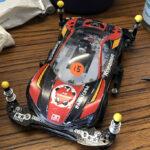
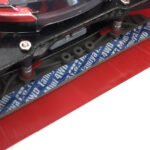
![7 different Tamiya Mini 4WD low profile small diameter tyres [Item no: 95208, 95205,95152, 95281, 95304]](https://mini4science.com/wp-content/uploads/2024/09/IMG_0538_mod2-150x150.jpg)
![8 different Tamiya Mini 4WD metal rollers [Item no: 95612, 15522, 95643, 95497, 15426, 95160, 15345, 15475]](https://mini4science.com/wp-content/uploads/2024/07/IMG_0296-150x150.jpg)
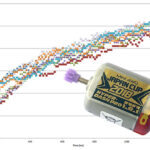
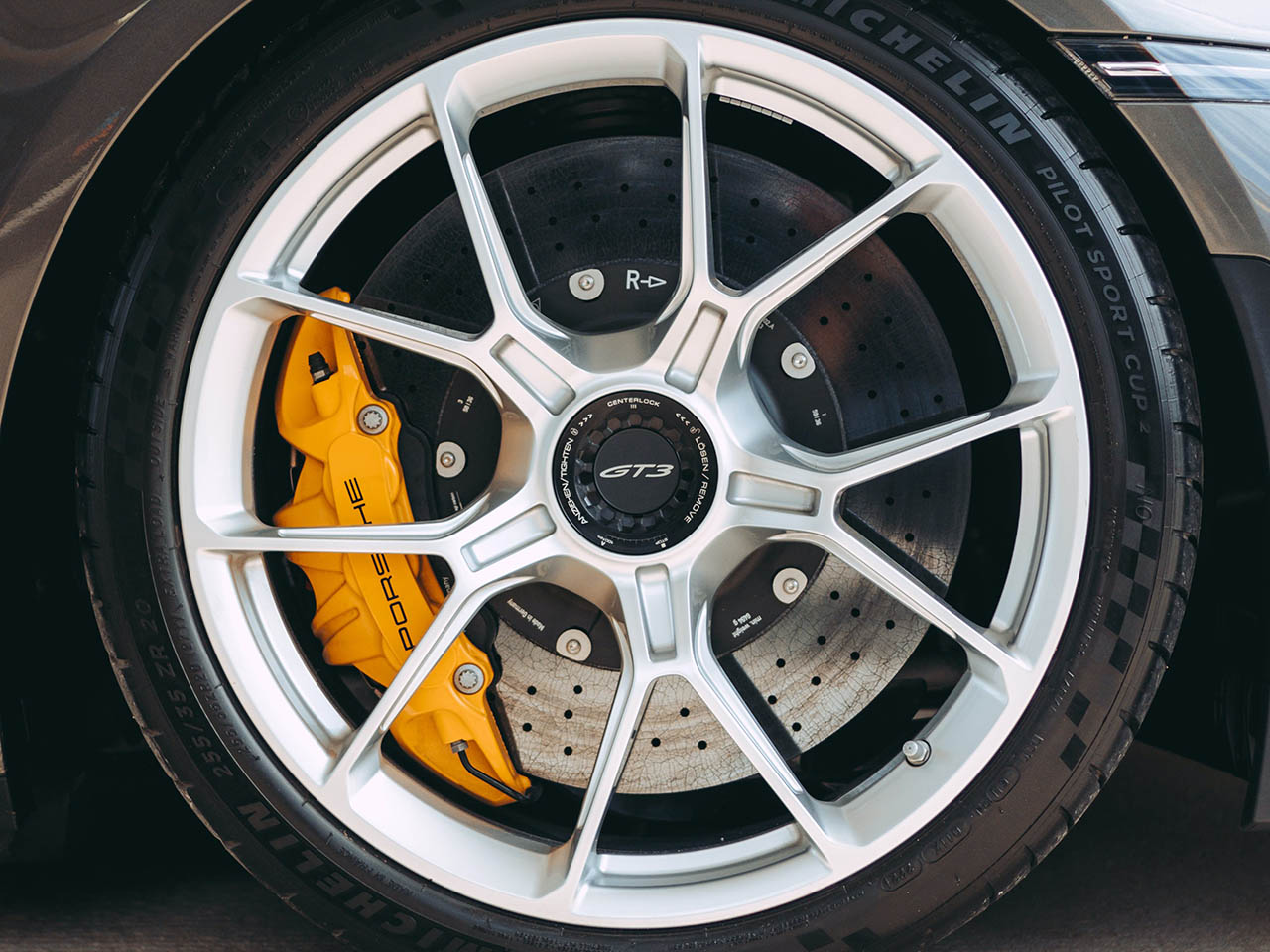


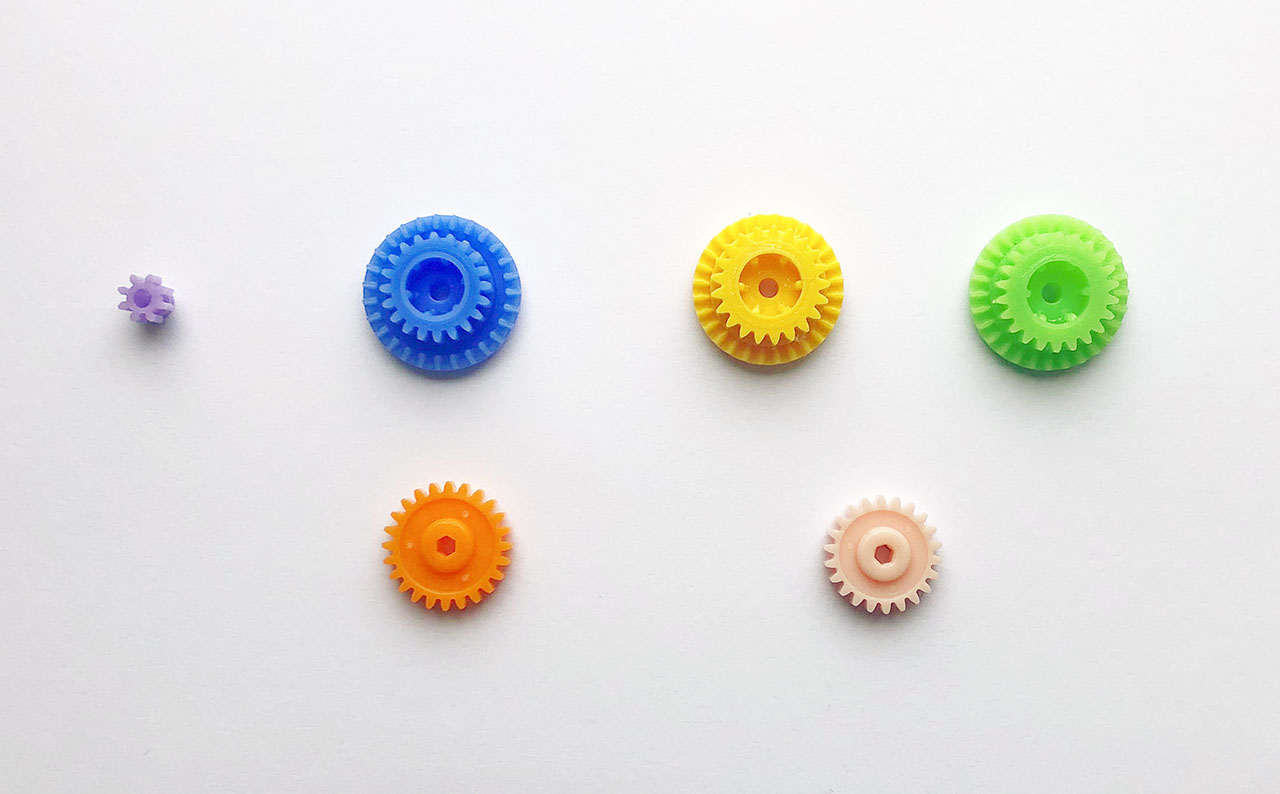
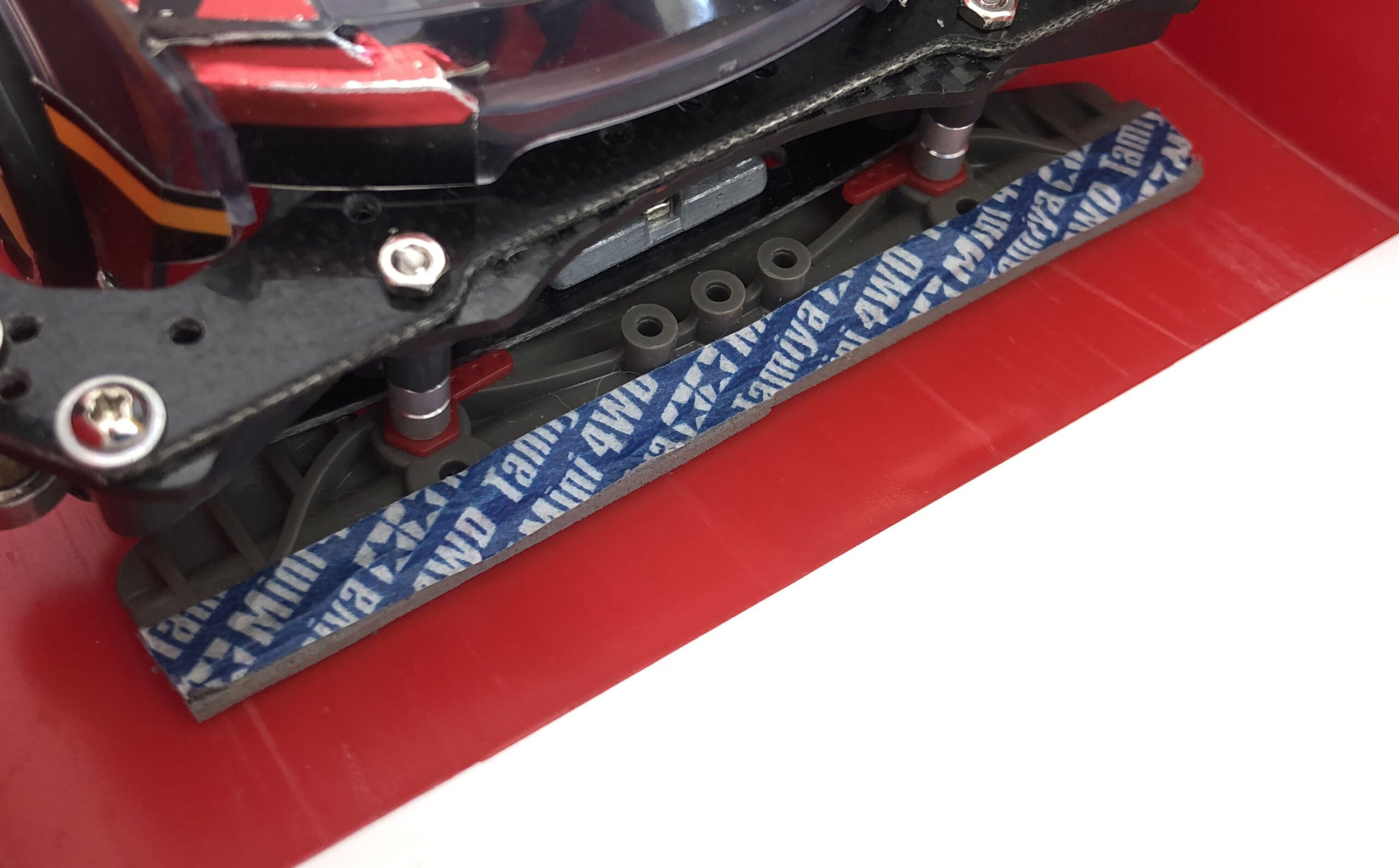
![7 different Tamiya Mini 4WD low profile small diameter tyres [Item no: 95208, 95205,95152, 95281, 95304]](https://mini4science.com/wp-content/uploads/2024/09/IMG_0538_mod2.jpg)
![8 different Tamiya Mini 4WD metal rollers [Item no: 95612, 15522, 95643, 95497, 15426, 95160, 15345, 15475]](https://mini4science.com/wp-content/uploads/2024/07/IMG_0296-scaled.jpg)

